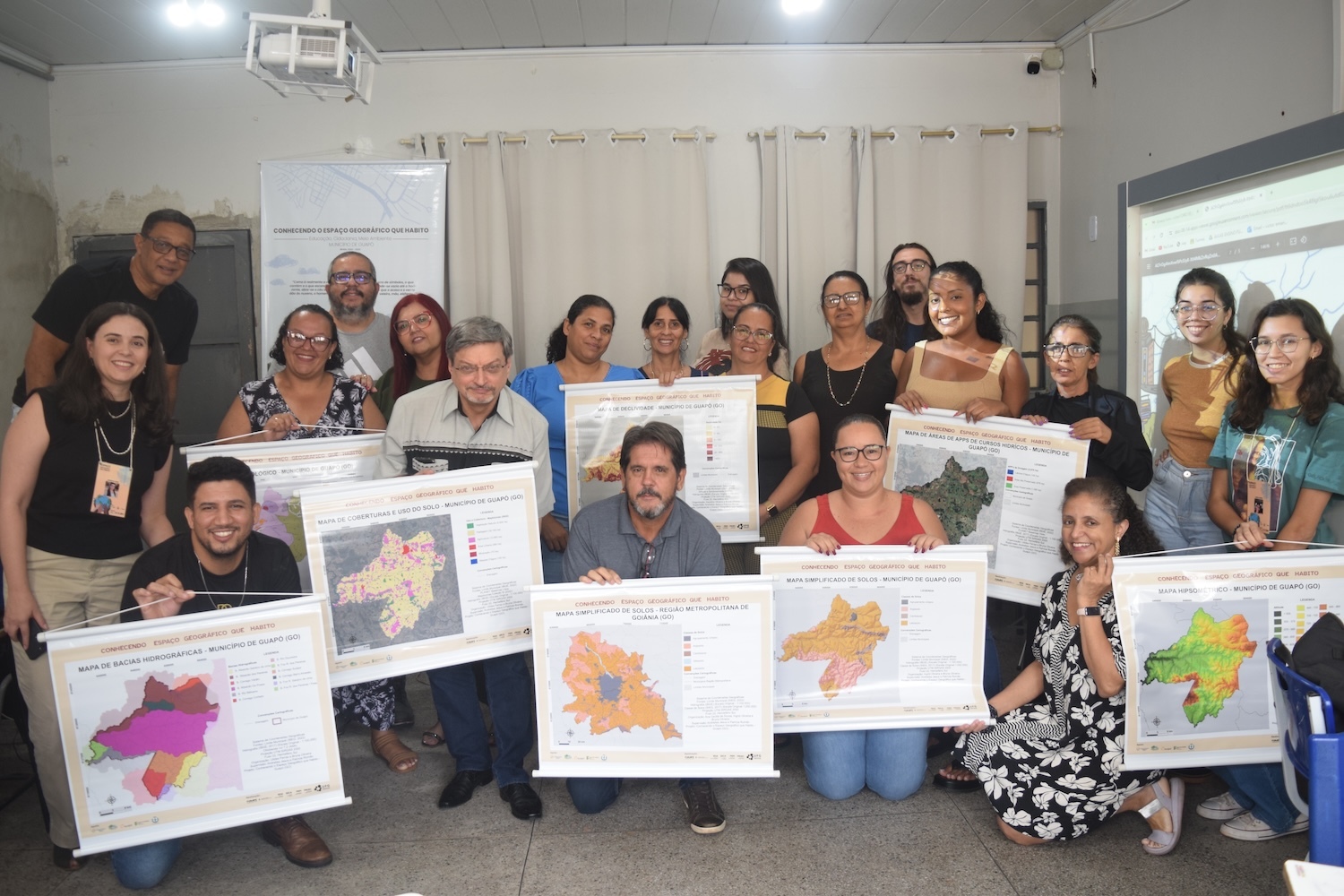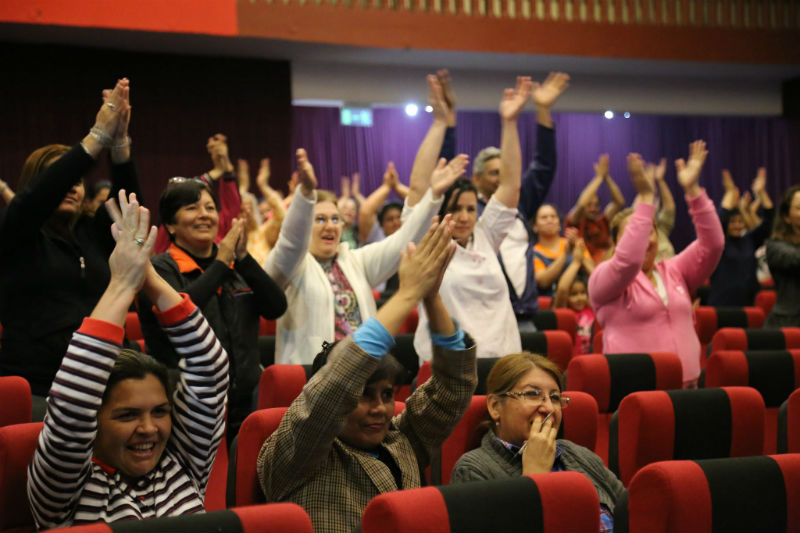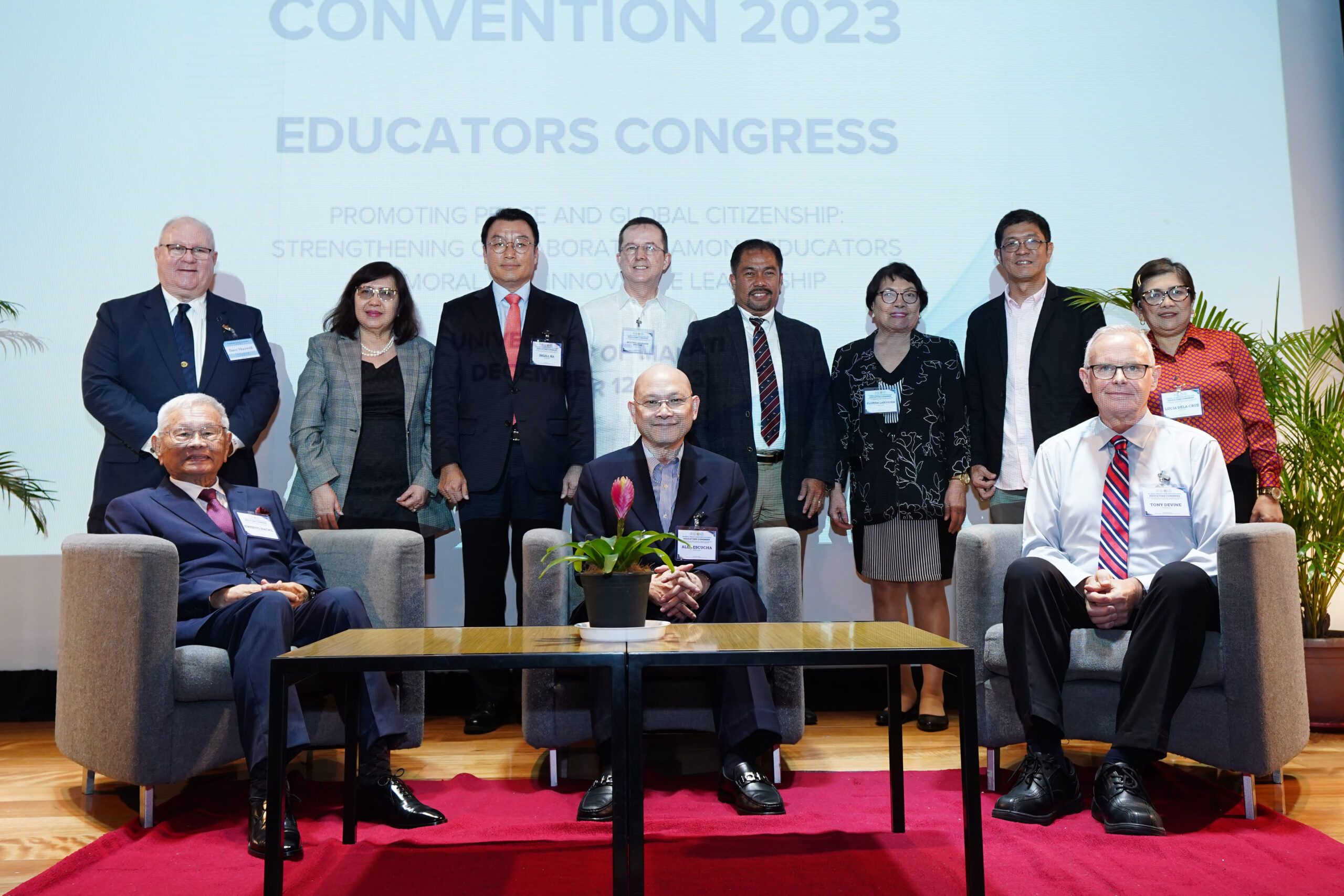By Sean Icely Allorde, for the Global Peace Foundation
Interaction between teachers and students has “radically changed” in recent years, Former Regional Director, Department of Education, Dr. Dinah Mindo, told educators, administrators, and education officials during proceedings at the 2017 Global Peace Convention in Manila. Speaking at a forum, “Learning for a Purpose: Reshaping what it Means to Educate,” Dr. Mindo said school life has also changed over time, and teachers and the classroom must adapt.
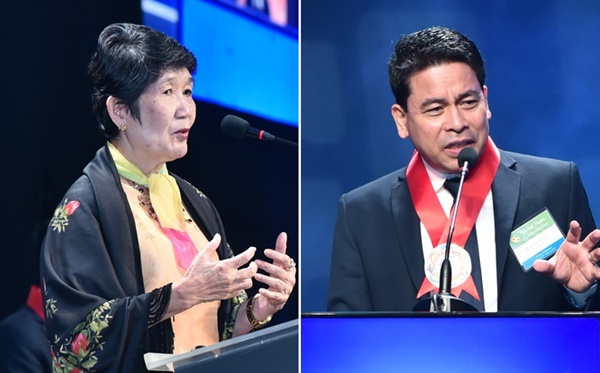
(left to right) Former Regional Director, Department of Education, Dr. Dinah Mindo, President of Philippine Association of State Universities and Colleges.
Dr. Mondo described today’s twenty-first century learners as more independent and multi-tasking. She said classrooms for a twenty-first century learning environment should aim to be inquiry-based, project-based, team-based, and learner-centered. “Teachers must be facilitators of learning; a motivator, assessor, educator, and provider of cognitive support,” Mondo said. “School is a place where students develop belongingness.”
Mrs. Ma. Elaine de Velez, CEO and Co-Founder of Frontlearners, emphasized the use of technology as an innovative educational tool. “Philippines education is ranked 53rd among 138 countries,” she said. Referring to graphs and data, she said it was clear that schools were not meeting expectations. She introduced a technology-based learning tool, the BlendEd Box.
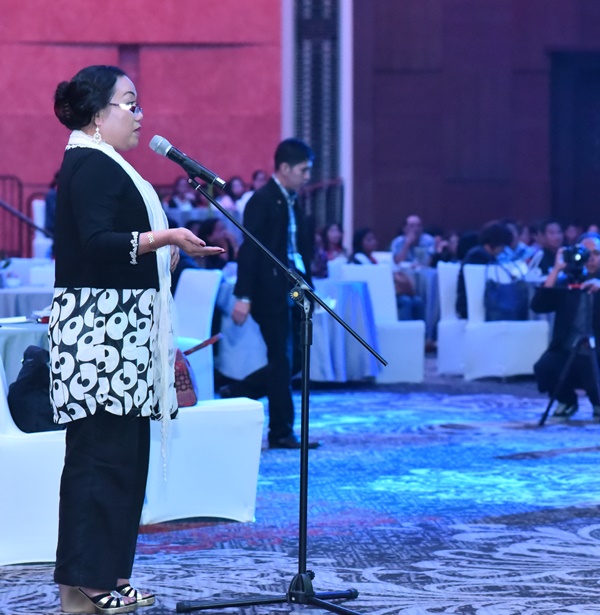
International educators, administrators, experts and students participated in the Transforming Education Track of during the Global Peace Convention 2017.
The laptop-like teaching tool does not need internet or Wi-Fi connection, giving access to even those who are in far-flung areas. She said that Frontlearners is planning to give the BlendEd Box to public schools and other needs-based education programs for free. “Technology has ways to enhance us in making these pillars work,” de Velez said.
President of Philippine Association of State Universities and Colleges Dr. Ricardo Rotoras presented education data and issues that he said must be addressed by the government. He described the “trifocalization” of the educational system in the Philippines into three distinct groups: the Department of Education, centers on basic education (elementary and high school); the Center for Higher Education, tertiary education; and technical education and Skills Development Authority and vocational education. Rotoras said these related entities must work and talk together.
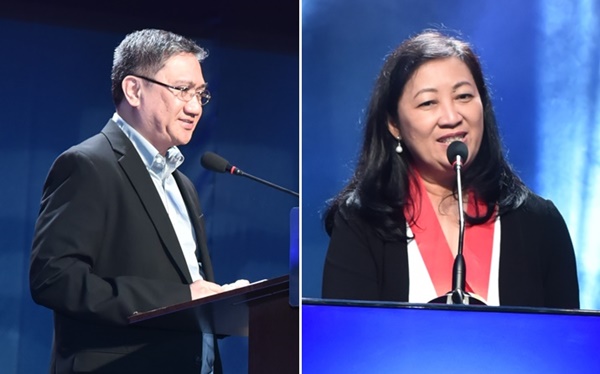
(left to right) Mrs. Ma. Elaine de Velez, CEO and Co-Founder of Frontlearners, Mr. Mann Rentoy, Director of Character Education Partnership.
The final speaker, Mr. Mann Rentoy, Director of Character Education Partnership, Philippines, said the attitude and viewpoints of students today were at times “disagreeable and unacceptable,” and this has had an impact on educational environment and outcomes. “Today’s students are not as kind, not as courteous as we are as students before,” he said.
Youth who see casual sex, prostitution, gambling, abortion and suicide as acceptable, who become narcissistic because of high and long exposure to technology, who lose morality in general, must undergo character formation, he said. Yet youth themselves can be the solution, he added.
Rentoy discussed the objectives of Character Education Partnership (CEP) and Chastity and Pro-life, and how he works with students in engaging in activities that shape them to become catalysts of change. “They must realize that they can make an impact, a change. Young people have the capacity to change society,” he concluded.
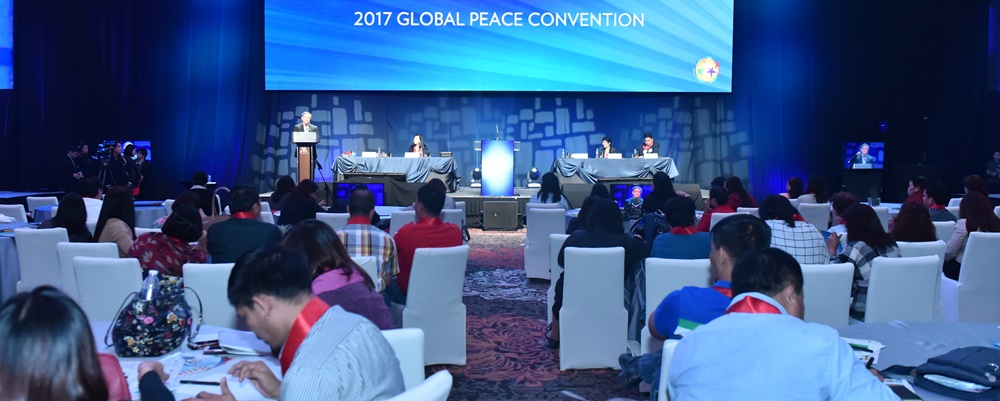
The panel was moderated by the Region IX Director of Department of Education, Dr. Isabelita Borres. Educational transformation was one of six focus areas explored during the Global Peace Convention 2017 in the Philippines, including interfaith peacebuilding, youth and women empowerment, and business and entrepreneurship as resources for peace and sustainable development. The Global Peace Convention 2017 concludes on March 3.

